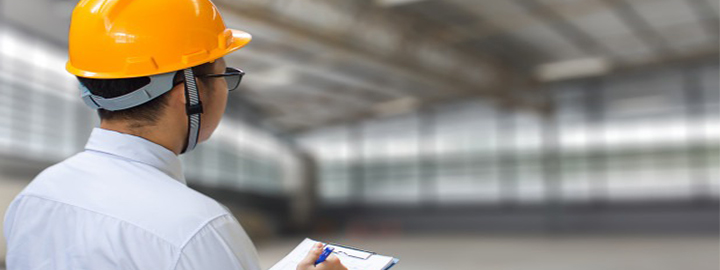April 6, 2020
News and Insights
Non-essential activities interruption verification
Contáctenos:
Non-essential activities interruption verification
On April 1st, the General Directorate of Federal Labour Inspection of the Decent Work Unit of the Undersecretary of Labour issued the DGIFT 02/2020 Criteria applicable to the development of extraordinary inspections derived from the health emergency declaration due to force majeure in relation to the epidemic generated by the SARS-CoV2 virus (COVID-19).
These criteria was issued on the basis of articles 540 of the Federal Labour Law, 18 and 19 of the General Regulation on Labour Inspection and Sanctions Application, and 18 of the Internal Regulation of the Ministry of Labour and Social Security.
It should be recalled that, by virtue of the publication of the extraordinary measures to address the health emergency generated by COVID-19 on March 31, 2020 in the Federal Official Gazette, among other measures, the immediate suspension of non-essential activities from March 30 (sic) to April 30, 2020 was decreed.
The aforementioned criteria regulates the way in which the monitoring of the extraordinary measure mentioned above shall be carried out by Federal Labor Inspectors and Qualified Federal Labor Inspectors. It should be noted that the relevant inspections may be carried out during non-working days and hours.
The workplaces that the inspectors will visit will be those where it is known by any means, that there are probable breaches of labor standards or complaints that workers are working in conditions that put their health at risk due to exposure to COVID-19.
The aforementioned criteria includes the information that the inspectors will require from the workplaces subject to inspection, including name, address, articles of association, actual activity of the company in the workplace, SCIAN economic activity, social security scheme, class of risk, risk premium, form of physical integration of the workplace, dimensions, number and information on its employees, employers’ chamber, trade union, type of contract, accounting capital and tax domicile. Likewise, the inspectors will ask for a description of the productive process or economic activity, including (i) description of the productive process or economic activity; (ii) products and sub products obtained; (iii) waste and residues; and (iv) machinery and equipment.
With the information provided, the inspector will determine if a workplace is authorized to continue operating or, if so, if it should suspend activities.
If the inspector confirms the presence of a workplace authorized to continue operations, the inspector will verify that the safety measures outlined by the federal authorities are being followed.
In the case of workplaces that are not foreseen in the decree as an essential activity, the following procedure will be followed:
a) The employer or its legal representative shall only be requested to suspend the activities immediately, ordering the withdrawal of all employees from the workplace.
In the event that the visited workplace involves a complex industrial procedure that merits that certain areas and/or activities cannot be stopped, such situation must be immediately reported by the federal labour inspector to his superior or to the General Directorate of Federal Labour Inspection in order to receive indications.
b) In case the employer refuses to suspend activities, the inspector shall inform the Head of the relevant Federal Labour Office, who shall file a complaint with the relevant Public Prosecutor’s Office for the fact that the employer did not respect the agreement mentioned above.
It should be noted that, in terms of the issued criteria, there will not be any interviews with employees.
If you have any questions or comments regarding this statement, please do not hesitate to contact any of our partners or associates.
Sincerely,
Cannizzo, Ortiz y Asociados, S.C.




